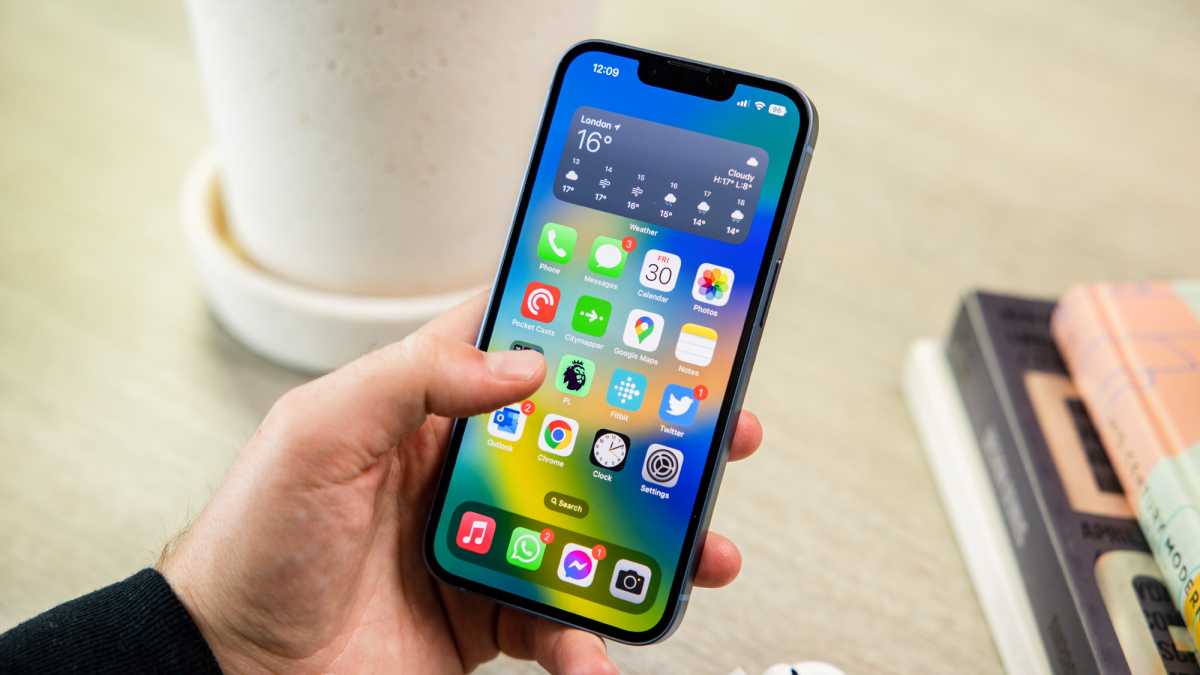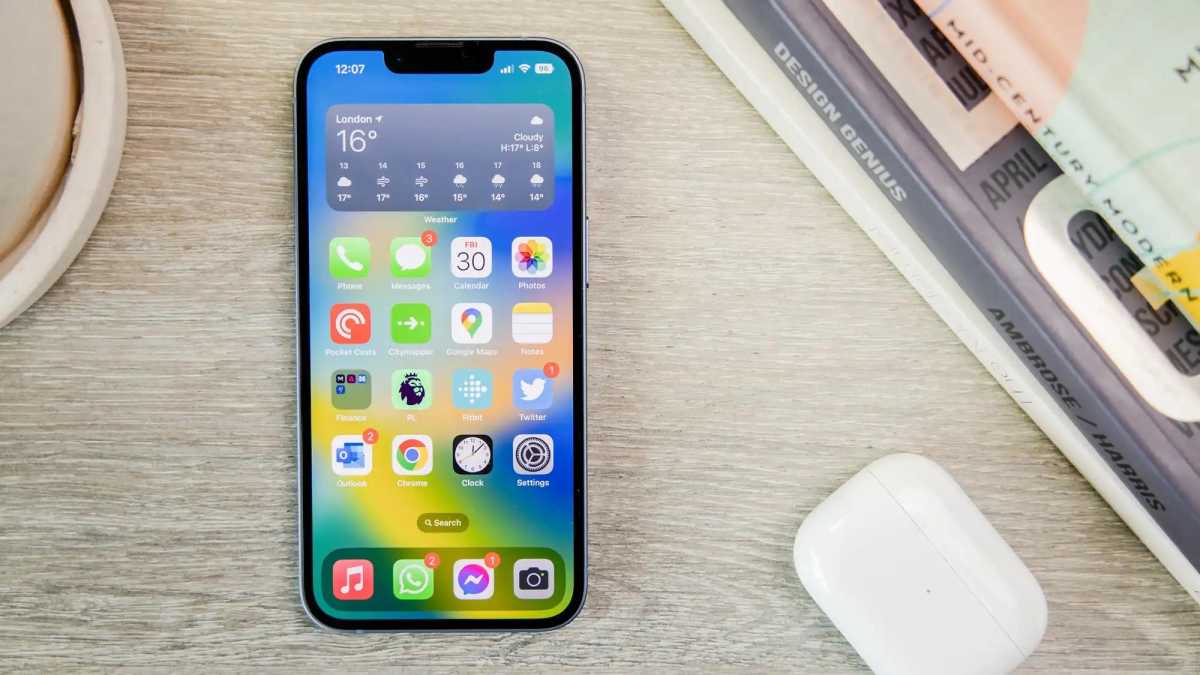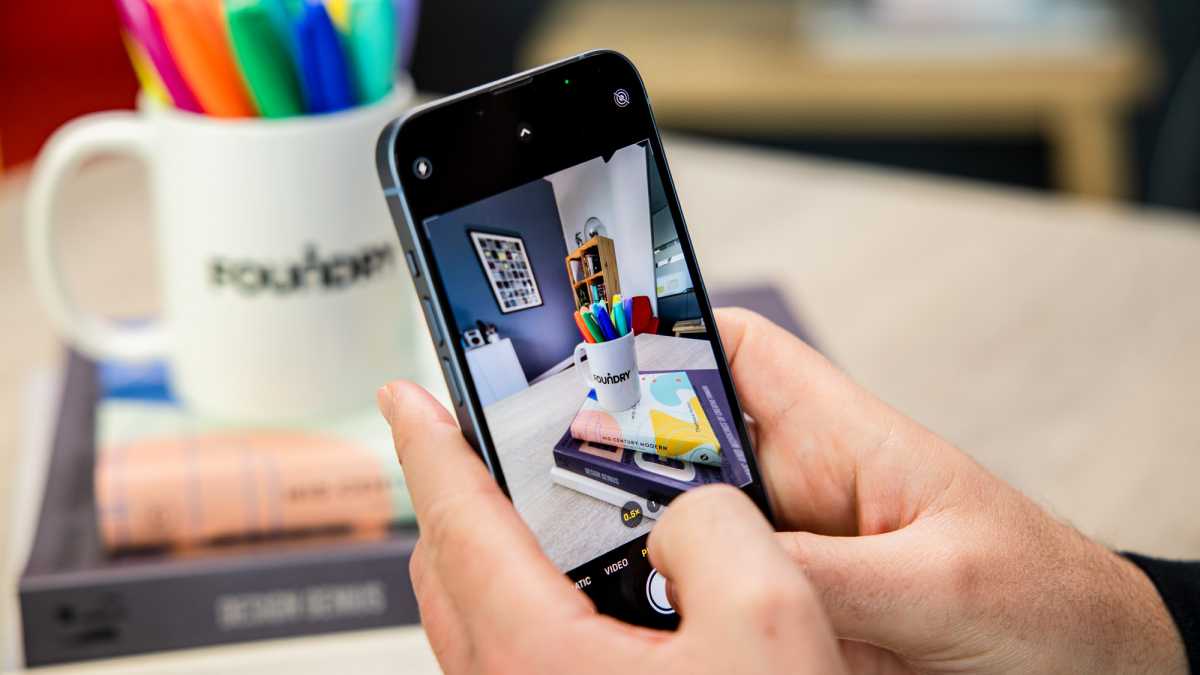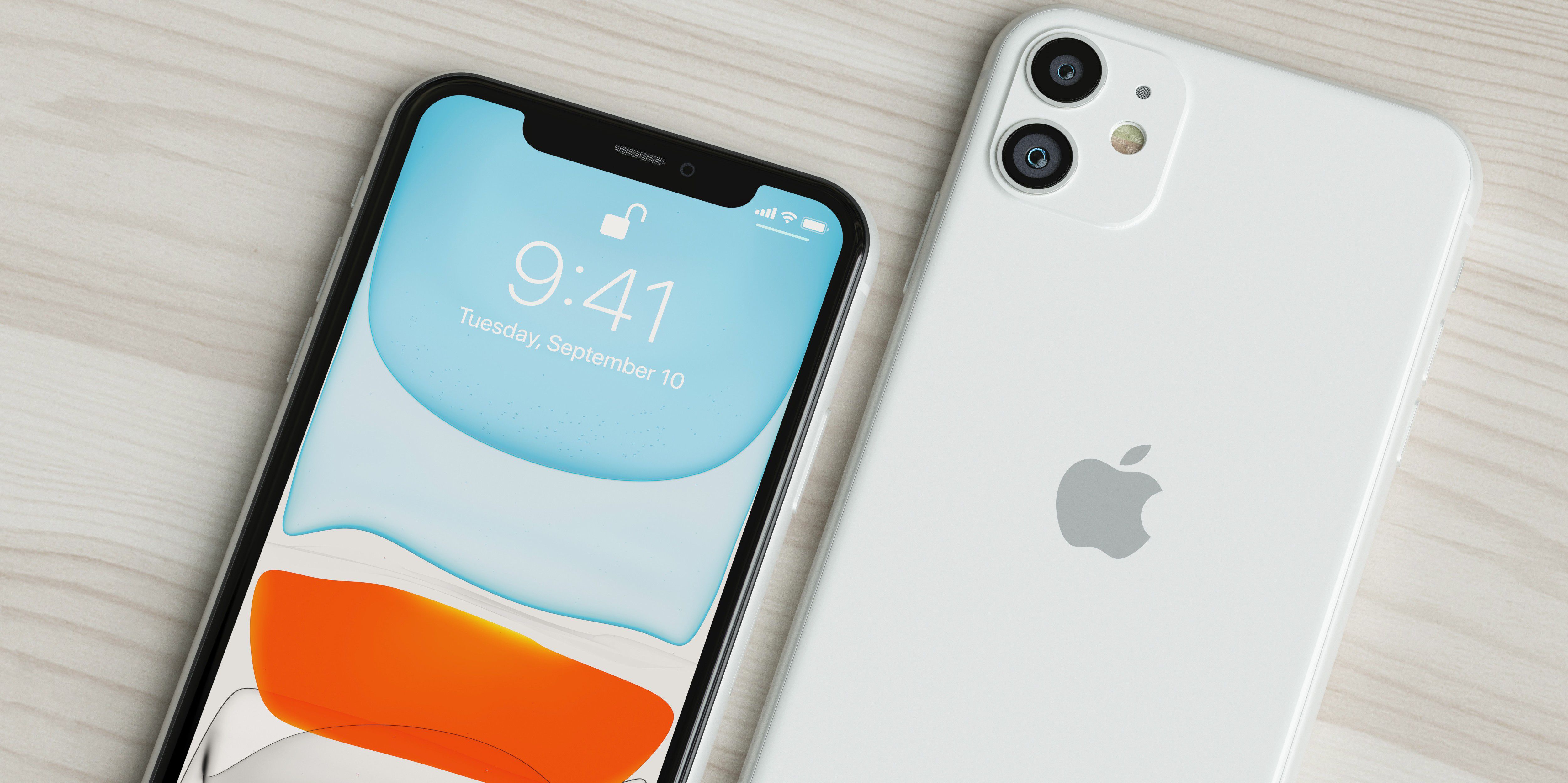The iPhone 14 is the latest generation of Apple’s smartphone range, replete with all the bells and whistles you’d expect. But, if you’re on an iPhone 11 and thinking of upgrading, you can be certain that the iPhone 14 is a lot better. But how does it really compare to Apple’s latest phone?
iPhone 14 vs iPhone 11: Design
These two iPhones come with quite noticeably different aesthetics. The iPhone 11 shares the same curved lines as the iPhone X, Xs, and Xr, while the iPhone 14 uses Apple’s newer flat-edged design that was introduced with the iPhone 12 and has a smaller notch than the 11. The phones are similar, but the iPhone 14 definitely looks more modern, with sharper lines that hark back to the golden era of iPhone design that debuted with the iPhone 4.
Here’s how the two compare in terms of dimensions:
- iPhone 14: 146.7mm x 71.5mm x 7.8mm; 172g
- iPhone 11: 150.9mm x 75.7mm x 8.3mm; 194g
As you can see, the iPhone 11 is taller, fatter, and thicker than the newer model, plus it’s more than 20 grams heavier too.

Dominik Tomaszewski / Foundry
Both have many similarities, sporting a 6.1-inch display, dual rear cameras, Lightning port, and aluminum chassis, and come in a variety of colors (white, black, green, yellow, purple, and red for the iPhone 11; Midnight (black), Starlight (silver), blue, purple and red for the iPhone 14). In a nutshell, they both look like iPhones, but the iPhone 14 looks like a newer one.
iPhone 14 vs iPhone 11: Display
While both phones have a 6.1-inch screen, there are some significant upgrades on the iPhone 14. Firstly, the display on the newer model is OLED rather than the lower-quality LCD on the 11. The iPhone 14 also has a higher resolution, HDR, a greater contrast ratio, and is significantly brighter.
iPhone 14
- 2532×1170 resolution (460ppi)
- 2,000,000:1 contrast ratio
- 800 nits max brightness (typical), 1200 nits peak brightness (HDR)
iPhone 11
- 1792×828 resolution (326ppi)
- 1400:1 contrast
- 625 nits max brightness
That’s not to say that the display on the iPhone 11 is bad, but the years between the models have seen Apple ramp up the quality on the superior panel of the iPhone 14. The new range also comes in a larger variant, the iPhone 14 Plus, which boasts a 6.7-inch OLED panel for those who want even more space on their display. The iPhone 14 also has a Ceramic Shield covering for the front panel, which is tougher than the Gorilla glass found on the iPhone 11l.

Dominik Tomaszewski / Foundry
iPhone 14 vs iPhone 11: Camera
At first glance, it might seem that the cameras on the two devices are actually very close. Both have dual cameras on the rear, consisting of a 12MP main and 12MP Ultra Wide. Look a bit closer, however, and you’ll see that like with everything else the iPhone 14 has been tweaked to offer more capabilities.
For a start, the iPhone 14’s 12MP main camera has an aperture of f/1.5 rather than the f/1.8 on the iPhone 11. This might not sound like much, but will improve low-light photography and offer a shallower depth of field. Stabilization is also different, with the older device coming with Optical Image Stabilisation (good) but the iPhone 14 having Sensor-Shift Stabilisation (better).
There’s the same Deep Fusion technology on both, as well as .5x and 1x optical zooms, True Tone Flash, Portrait, Portrait Lightning, and Night modes. The iPhone 14 bumps up the Smart HDR to version 4, whereas the 11 is back on version 2, plus there’s the new Photonic Engine in the 14 that uses software to further improve the color and contrast balance in shots. Apple upgrades the camera with each iPhone generation, so after three years, you’ll definitely see a significant improvement in photo quality.

Dominik Tomaszewski / Foundry
On the video side of things, there are a lot of shared features, as both can shoot up to 4K at 24, 25, 30, or 60 frames per second. There’s also slo-mo video that maxes out at 1080p/240fps, Time-lapse with stabilization, QuickTake videos, 2x optical zoom, audio zoom, and stereo recording.
The TrueDepth front cameras are very similar, as they both have 12MP sensors but the f/1.9 aperture on the iPhone 14 is slightly wider than the f/2.2 one of the iPhone 11. You’ll also get Night mode on the iPhone 14, which will help will low-light situations.
Where the newer processor in the iPhone 14 comes into play is with Cinematic mode, which allows you to pull focus and have a very shallow depth of field to achieve movie-style effects. There’s also the Action mode that keeps everything steady even if you’re running around with the camera, plus HDR video at 4K/60fps. You’ll get some great pictures and video on the iPhone 11, but if you’re a budding Christopher Nolan then the extras features on the iPhone 14 will be hard to resist.
iPhone 14 v iPhone 11: Processor and specs
The iPhone 14 has Apple’s A15 Bionic chip at its heart, which is quite the beast. From a structural point of view, it has the same 6-core CPU as the A13 Bionic in the iPhone 11, but it’s significantly faster with an additional GPU core and twice as many cores in its Neural Engine. Battery life will be greatly improved as well. In our testing, we got about 9 hours of battery life with the iPhone 14 versus 5-and-a-half with the iPhone 11.
Storage is more generous on the iPhone 14, as it comes in 128GB, 256GB, and 512GB variants, while the iPhone 11 launched with 64GB, 128GB, and 256GB allocations. Both phones have IP68 waterproof ratings, though the iPhone 14 can survive being immersed deeper than the iPhone 11 (6 meters as opposed to 2). You’ll also get Wi-Fi 6, NFC, and Bluetooth on both (although the latter is 5.3 on iPhone 14 but 5.0 on iPhone 11). And on the iPhone 14, you’ll get 5G wireless speeds, while the older model has 4G LTE.

The iPhone 11 has a slower processor but is still a very capable iPhone even in 2022.
Shutterstock / ALDECAstudio
iPhone 14 vs iPhone 11: Price
When it was released in 2020, the iPhone 11 was cheaper than today’s iPhone 14. However, you’re getting more storage, 5G support, and a newer design for an extra $100 and up.
iPhone 14
- iPhone 14 (128GB): $799/£849
- iPhone 14 (256GB): $899/£959
- iPhone 14 (512GB): $1,099/£1,179
iPhone 11
- iPhone 11 (64GB): $699/£699
- iPhone 11 (128GB): $749/£749
- iPhone 11 (256GB): $849/£849
iPhone 14 vs iPhone 11: Should you upgrade?
Even all these years later, the iPhone 11 is still a decent phone with plenty to offer. The cameras are solid, the performance should still be plenty good, and iOS will still be supported for several years to come. However, the iPhone 14 is vastly superior in many ways, with a fantastic display, faster chip, and enhanced camera capabilities, as well as a lighter and newer design. Both are good, but the iPhone 14 is simply better—and if you’ve been considering an upgrade, we recommend going for it.




